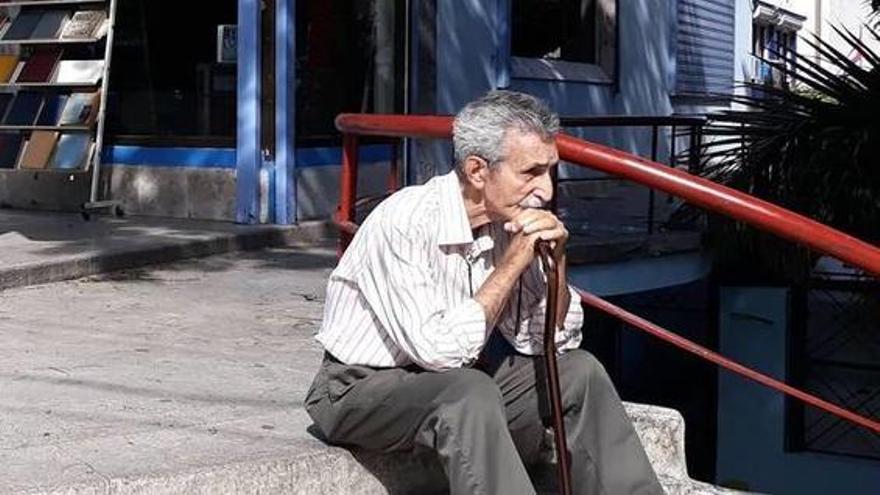
![]() 14ymedio, Havana, 7 January 2024 — The collapse of the finances of the Cuban State, the accelerated aging of the population, the increase in life expectancy and the loss of tax income due to the massive emigration of workers, have led the Council of Ministers to modify the method for calculating pensions for retirement and total disability. The regulations seek to reduce public spending with new regressive scales, which will penalize employees who receive earnings above the average.
14ymedio, Havana, 7 January 2024 — The collapse of the finances of the Cuban State, the accelerated aging of the population, the increase in life expectancy and the loss of tax income due to the massive emigration of workers, have led the Council of Ministers to modify the method for calculating pensions for retirement and total disability. The regulations seek to reduce public spending with new regressive scales, which will penalize employees who receive earnings above the average.
The decree, adopted on November 29 by the Government, came into force with its publication on January 4 in the Official Gazette and will apply to those who request retirement from now on.
The basis for calculating the pension for age and total disability will be determined on the average monthly salary resulting from the highest salaries earned by the worker during five years, selected from the last fifteen calendar years prior to the application for the pension. As for the payments – and here is the novelty – which “form part of the calculation basis for long-term benefits,” they will be subject to a regressive calculation: “Up to nine thousand five hundred and ten pesos, one hundred percent is considered as the basis for calculating the pension [while] to the excess of twenty-eight thousand five hundred and thirty pesos, twenty percent is applied.”
The justification for the change highlights that when considering the payment of pensions the distribution of earnings have been generated “with high amounts”
The justification for the change highlights that by contemplating the distribution of earnings for the payment of pensions, “high amounts” of remuneration have been generated. The solution is to change the calculation base for retirements “in order to mitigate the expenses of the social security budget.”
“The aging of the Cuban population affects the increase in expenses of the budget of the social security system,” underlines the official text. The decree indicates that, on the one hand, the number of people who reach retirement age and the time during which they remain as pensioners increase and, on the other, the number of contributors decreases as the employed workforce is not replaced, that is, the working population.
The legal text indicates that the change is inserted in the new socioeconomic scenario that the Island is experiencing. The payment of pensions was modified in 2020 when the minimum pension was set at 1,520 pesos, however the gradual devaluation of the Cuban peso means that many elderly people are in a situation of poverty in the face of high prices resulting from inflation.
The previous decree eliminated the limits on the amount of monthly salaries to be distributed by each worker and added the payment of earnings to the calculation basis for social security benefits, a formula that led to higher pensions in many cases, overloading the state budget.
The previous decree eliminated the limits on the amount of monthly salaries to be distributed for each worker and added the payment of salaries to the calculation basis for social security benefits
For its part, the new Decree 99 maintains these special conditions of exceptional payments for activities such as work related to loadind and unloading ships “that are applied in port activity or other legally recognized payments that do not constitute salary and that form part of the base of calculation for long-term benefits.”
Likewise, the regulations warn that those who have started the retirement process before the publication of the current decree will comply with the provisions of the previous legislation.
In 2018, the minimum pensions rose from 200 to 242 pesos, by provisions of Raúl Castro and, just over two years later, with the Ordering Task*, the minimum amount rose to 1,520.
According to data from the National Office of Statistics and Information (Onei), at the end of 2022, 22.3% of the Cuban population was over 60 years old and life expectancy exceeds 77 years.
*Translator’s note: The “Ordering Task” was a collection of measures that include eliminating the Cuban Convertible Peso (CUC), leaving the Cuban peso as the only national currency, raising prices, raising salaries (but not as much as prices), opening stores that take payment only in hard currency which must be in the form of specially issued pre-paid debit cards, and a broad range of other measures targeted to different elements of the Cuban economy.
____________
COLLABORATE WITH OUR WORK: The 14ymedio team is committed to practicing serious journalism that reflects Cuba’s reality in all its depth. Thank you for joining us on this long journey. We invite you to continue supporting us by becoming a member of 14ymedio now. Together we can continue transforming journalism in Cuba.
